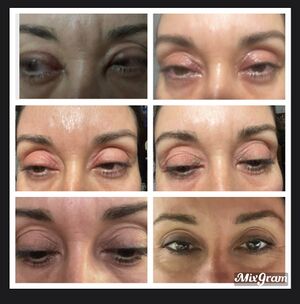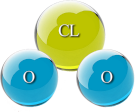Conjuntivitis solved
Case Report:
Acute Conjunctivitis Associated with False Eyelash Application

Patient: Gloria Alzate
Location: Cali, Colombia
History:
The patient presented with acute conjunctivitis, which was attributed to the application of false eyelashes. The symptoms included significant ocular discharge and irritation.
Treatment Protocol:
The patient was treated with a 30% CDS (Chlorine Dioxide Solution) drop. The administration method involved the following steps:
- First Drop: Upon instillation, the patient was advised to squeeze the eyes to facilitate distribution.
- Second Drop: The patient was instructed to allow the solution to penetrate without immediate pressure.
This regimen was to be repeated several times throughout the day.
Testimonial:
Despite familial concerns prompting a visit to an ophthalmologist, the patient opted to follow the guidance of Dr. Yepes and utilize the CDS and DMSO (Dimethyl Sulfoxide) treatment protocol. Improvements were noted within four days of adherence to this regimen, with total recovery reported in 15 days.
The patient experienced significant ocular discharge initially, which prompted continued reliance on the CDS and DMSO eye treatment. Additionally, the patient used patches and Aloe Vera for moisturizing, addressing a mild thermal burn-like crust on the eyelids that presented as scabbing.
Follow-Up:
The patient continues to apply the treatment every three days to maintain ocular health and reports excellent results, though residual discharge and crusting persist. The patient expresses satisfaction with their recovery process and attributes their healing to both divine support and the treatment provided by Dr. Yepes.
Conclusion:
This case illustrates a successful self-managed treatment for acute conjunctivitis induced by cosmetic practices, highlighting the potential efficacy of alternative therapies under guided protocols. Further clinical evaluation may be warranted to establish broader applicability and safety of such treatments in similar cases.
